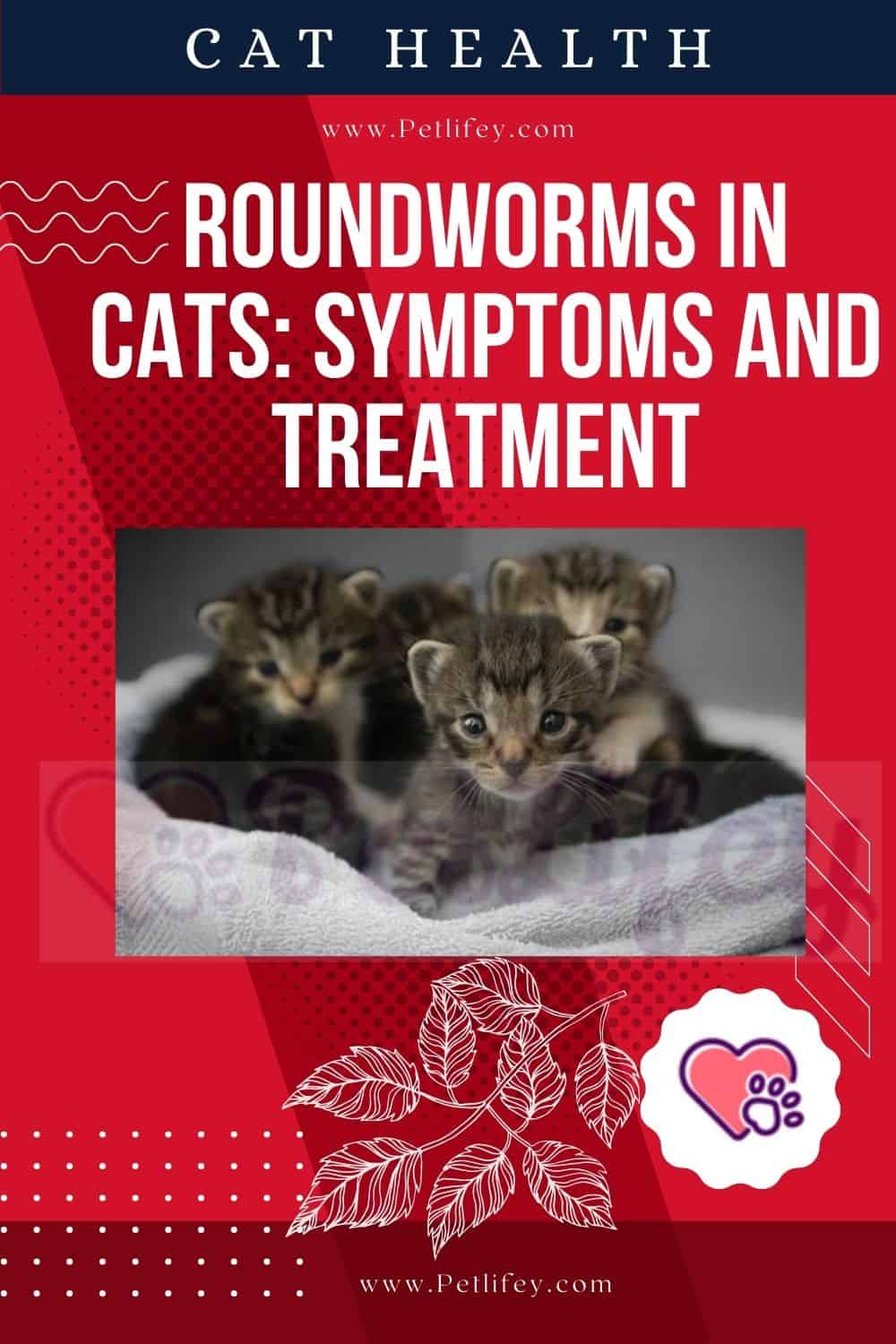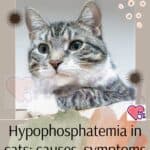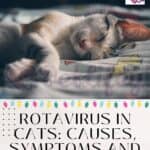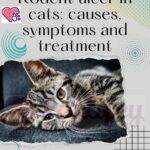Roundworms in Cats: Symptoms, Diagnosis, and Effective Treatment Options
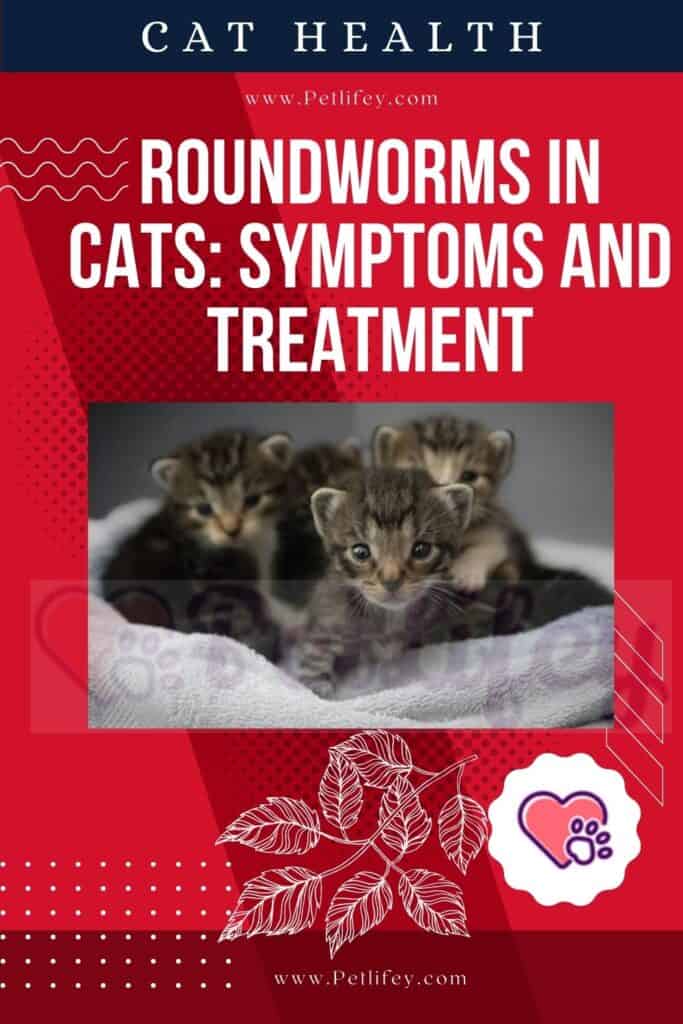
Roundworms are a widespread and significant concern for your cat’s health, especially in kittens and older felines. These parasitic worms settle in the intestines and have a high potential to cause various health issues. Your pet can contract roundworms in several ways, including through the mother’s milk, by ingesting eggs from the environment, or by eating an infected host, such as a rodent.
The symptoms of a roundworm infestation can include, but are not limited to, a dull coat, weakness, a pot-bellied appearance, weight loss despite a normal appetite, vomiting, and diarrhea. In severe cases, kittens may have stunted growth, and adult worms may be visible in the vomit or stool. In heavy infestations, roundworms can even lead to life-threatening blockages in the intestines.
When it comes to treatment, your veterinarian has effective options at their disposal. Typically, a diagnosis is made by examining a sample of your cat’s feces for eggs or by identifying adult worms. Deworming medications are readily available, and your vet will be able to recommend a treatment regime tailored to your cat’s specific needs. It’s essential to follow the prescribed treatment plan thoroughly to ensure the elimination of both adult and immature worms. Regular fecal examinations and preventive measures will help keep your cat roundworm-free and healthy.
Understanding Roundworms
Roundworms are a significant health concern for your cats, involving a lifecycle that spreads through various transmission methods and affecting their health in multiple ways.
General Lifecycle of Roundworms
Roundworms, as intestinal parasites, have a lifecycle that ensures their proliferation within their host’s environment. The lifecycle begins when cats ingest infective eggs from soil or other contaminated surfaces, like sandboxes. Once inside your cat, these eggs hatch into larvae and travel through the body before maturing into adult roundworms in the intestines. Adults then produce eggs, which cats excrete into the environment through feces, continuing the cycle of infection.
Common Species Affecting Cats
The most prevalent roundworm species in cats is Toxocara cati. This parasite resides in the cat’s intestines, where it completes its reproductive cycle. Another species known to affect cats is Toxascaris leonina, though it is less common.
Transmission Methods
Roundworms in cats are highly contagious, especially in densely populated environments. Transmission occurs through consuming roundworm eggs present in the environment, which can be found in contaminated soil, feces, or surfaces where other infected animals have been. Another typical transmission method is when cats catch and eat infected rodents, introducing the parasite into their system. Additionally, kittens may become infected through their mother’s milk if the queen carries the parasites.
Identifying Symptoms in Cats
Roundworms in cats can cause a range of symptoms, some of which may be easily observable. Early detection based on these signs is crucial for prompt treatment.
Physical Signs
- Diarrhea: Keep an eye out for loose or liquid stool which can indicate the presence of roundworms.
- Vomiting: Your cat may expel adult worms or have an upset stomach.
- Weight Loss: Despite regular feeding, unexplained weight loss can be a symptom.
- Dull Coat: The coat may lose its shine and appear rough.
- Pot-Bellied Appearance: Especially in kittens, a swollen abdomen is a classic sign of roundworms.
Behavioral Changes
- Lethargy: If your cat is less active or shows a lack of interest in normal play, it may be due to the parasite’s impact.
- Cough: Watch for coughing, which may occur if larvae have migrated to the lungs.
It’s important to regularly check your cat’s stool and monitor for these symptoms. If you notice any of these signs, consult a veterinarian for proper diagnosis and treatment.
Diagnosing Roundworms
When suspecting a roundworm infection in your cat, a visit to the veterinarian and a thorough diagnosis are essential. The two primary methods to confirm the presence of roundworms are a veterinary examination and a detailed stool sample analysis.
Veterinary Examination
Your veterinarian will conduct a comprehensive physical examination of your cat. During this examination, the veterinarian will look for clinical signs indicative of a roundworm infection, such as a pot-bellied appearance, abdominal discomfort, or general weakness. While these signs can suggest roundworms, they are not conclusive, so further testing is typically required.
Stool Sample Analysis
The definitive diagnosis for roundworms involves the analysis of your cat’s feces:
- Collection: You may need to bring a sample of your cat’s stool to the clinic, or the veterinarian may collect it during the examination.
- Fecal Flotation: This is the standard test for diagnosing roundworms. In this test, the stool sample is mixed with a solution that causes the worm eggs to float to the top, making them easier to detect under a microscope.
- Results:
- Roundworm Eggs: The presence of roundworm eggs during microscopic examination confirms the infection.
- Visible Worms: In some cases, adult roundworms may be visible in the stool without the need for a microscope.
By analyzing both the clinical signs and laboratory results, your veterinarian can confidently diagnose roundworms and recommend an appropriate treatment plan.
Treatment Strategies
Effective treatment for roundworms in cats involves specific medications administered under a veterinarian’s guidance. It’s essential to follow a structured deworming schedule to ensure the complete eradication of the parasites.
Medications Used
Your veterinarian may prescribe a deworming medication that targets roundworms. The most commonly used medications include:
- Fenbendazole: This medication is often prescribed for multiple days and can be effective against various worm infestations.
- Pyrantel Pamoate: Effective and frequently used, Pyrantel is administered either orally or in injectable form.
- Ivermectin: While not the first-line treatment for roundworms, Ivermectin can be used in cases resistant to other medications.
- Moxidectin: Sometimes included in topical treatments, Moxidectin can also be a component of heartworm preventatives that manage roundworm infections.
All these medications are potent and should only be used following a prescription by your veterinarian.
Deworming Schedule
Following a precise deworming schedule is crucial for the treatment to be successful. Here is a typical schedule you might expect:
- Initial Dose: Administer the first dose of the prescribed medication as directed by your veterinarian.
- Multiple Doses: Depending on the medication, additional doses may be necessary. Typically, these are given at two to four-week intervals to cover the lifecycle of the roundworms.
- Follow-up: Your veterinarian might recommend a follow-up visit to ensure the roundworms have been completely cleared from your cat’s system.
Remember, each cat’s situation is unique, and your veterinarian will provide a tailored deworming schedule. Stick to the prescribed routine closely, and never administer over-the-counter deworming medication without consulting a professional.
Prevention and Control
To safeguard your cat from roundworms, focus on maintaining a clean environment and providing appropriate healthcare. These measures can significantly reduce the risk of infection.
Environmental Hygiene
- Litter Box: Regularly clean your cat’s litter box. Scoop the litter box at least once a day and replace the litter weekly. Use a disinfectant safe for cats to clean the box. This routine minimizes the presence of roundworm eggs.
- Food: Store your cat’s food in a secure, clean container. Keep the feeding area tidy and free from pests that might carry roundworm eggs.
- Disinfectants: Clean your cat’s living areas with pet-safe disinfectants. Pay close attention to surfaces where eggs might reside.
Healthcare for Cats
- Dewormer: Administer a veterinarian-recommended dewormer as part of your cat’s regular health routine. Follow the dosing schedule accurately.
- Heartworm Preventative: Many heartworm preventatives also provide protection against roundworms. Ask your vet for a prescription that includes this benefit.
- Nursing: For nursing kittens, ensure the mother cat is free from roundworms to prevent transmission to her litter. If you have a pregnant or nursing cat, consult your vet for appropriate deworming protocols.
Potential Complications
When considering roundworm infections in cats, it’s important to recognize both the health implications for your cat and the risks posed to humans. Neglecting the treatment of roundworms can lead to serious complications.
Effects on Cats
Your cat could suffer from blockage of the intestine, a serious condition that disrupts normal digestive processes. Symptoms of an intestinal blockage include vomiting, diarrhea, and weight loss. In kittens, a heavy worm burden can lead to a pot-bellied appearance and poor growth.
The roundworms can cause anemia, weakening your cat due to a lack of adequate red blood cells. Without prompt treatment, the prognosis can become guarded, with the potential for long-term health issues or fatal outcomes.
Risks to Humans
Humans, particularly children, are at risk of contracting roundworms from infected cats. The condition known as ocular larva migrans can occur when roundworm larvae migrate to the eyes, possibly resulting in blindness.
Another condition, visceral larva migrans, happens when larvae spread throughout the body’s organs, which is particularly serious and requires medical attention. Your proactive management of roundworms in your cats can help prevent these zoonotic infections.
Understanding Risk Factors
Recognizing the risk factors for roundworms in cats is vital for prevention and early treatment. These parasites can affect cats of all ages, but some factors increase the likelihood of infection.
Life Stages and Susceptibility
Kittens are particularly vulnerable to roundworms as they might be exposed to the parasites via the placenta before birth or through their mother’s milk. As their immune systems are still developing, kittens may lack the defenses needed to fight off the infestation. Adult cats can get infected by ingesting roundworm eggs found in the environment or from consuming infected prey such as earthworms or fleas. Older cats might be at a lower risk due to developed immunity; however, no age group is completely safe without preventative measures.
- Kittens:
- High susceptibility
- Can be infected via placenta or milk
- Adult Cats:
- Contract roundworms through environmental exposure or prey
- Varying levels of risk depending on lifestyle
- Older Cats:
- Generally lower risk
- Pre-existing immunity helps, but reinfection is possible
Environmental Exposure
Your cat’s environment plays a significant role in the risk of roundworm infection. Cats with outdoor access are at a higher risk due to exposure to contaminated soil or prey animals that may carry roundworms. Indoor cats are at a lower risk, yet can still contract roundworms from fleas or infested dirt brought into the home. Contaminated environments may contain roundworm eggs which can remain infectious for long periods; these pose a risk for cats that come into contact with them.
- Outdoor Cats:
- Higher risk from soil or prey
- Greater interaction with potentially infected environments
- Indoor Cats:
- Lower risk, but still vulnerable to indoor transmission vectors like fleas
- Potentially infested houseplants or dirt tracked inside may harbor eggs
Additional Concerns Related to Roundworms
Roundworms have significant effects on your cat’s health that extend beyond the immediate symptoms. They can interfere with nutrient absorption and pose risks to humans, especially children, through accidental ingestion of eggs.
Impact on Cat Nutrition
Your cat’s ability to absorb nutrients properly can be compromised due to the presence of roundworms in its intestinal tract. Essential nutrients such as vitamins, minerals, and proteins, are crucial for your cat’s overall health and development. Here’s how roundworms can affect those vital processes:
- Nutrient Absorption: Roundworms consume the food meant for your cat, leading to malnutrition.
- Growth: Kittens are particularly vulnerable as roundworms can stunt growth by depriving the young felines of necessary nutrients.
Ensuring that your cat’s diet is balanced and nutrient-rich is an important part of managing their health when dealing with a roundworm infection.
Considerations for Cat Owners
As a cat owner, understanding the human risks associated with roundworms is essential:
- Hand Washing: Always wash your hands thoroughly after handling your cat’s feces, as roundworm eggs present in the stool can pose a health risk to humans.
- Safety for Children: Children are especially at risk of ingesting roundworm eggs due to their close contact with pets and their habit of putting hands in their mouths.
- Fecal Contamination: Prevent contact with contaminated soil or feces by keeping your cat’s litter box clean and your yard feces-free.
By being vigilant about food preparation and hygiene, you can reduce the risk of roundworms affecting both your cat and your family.

